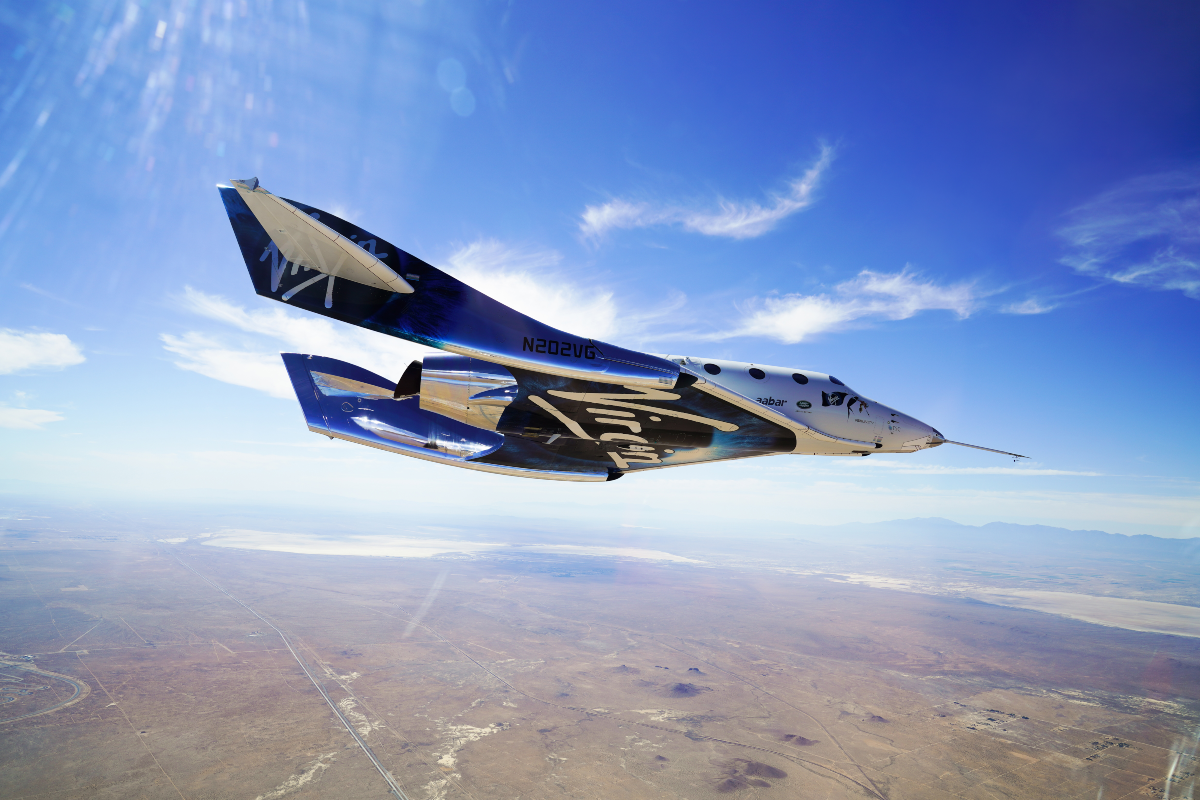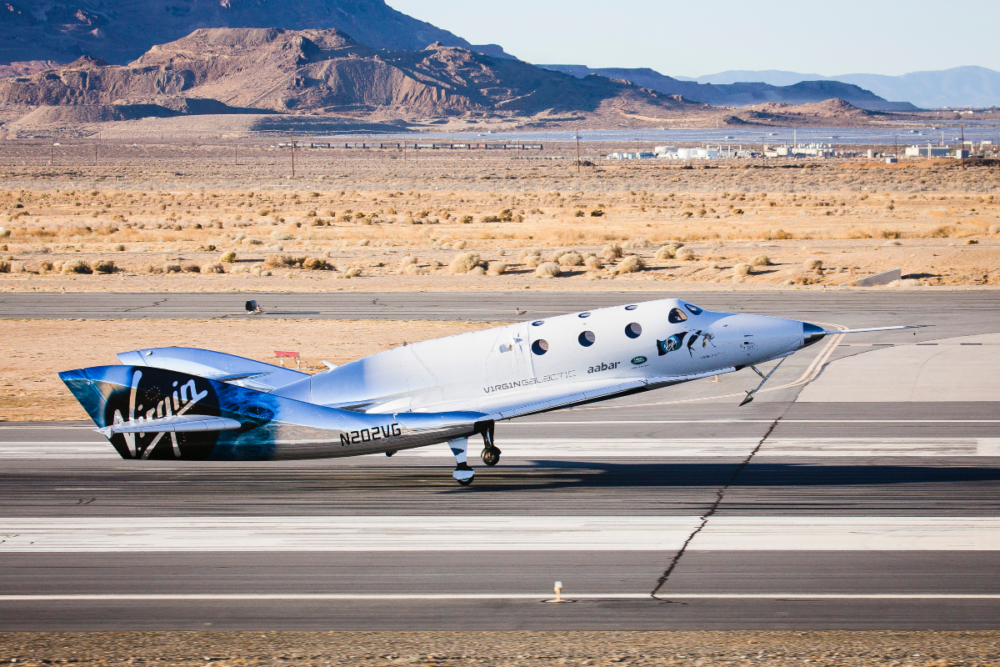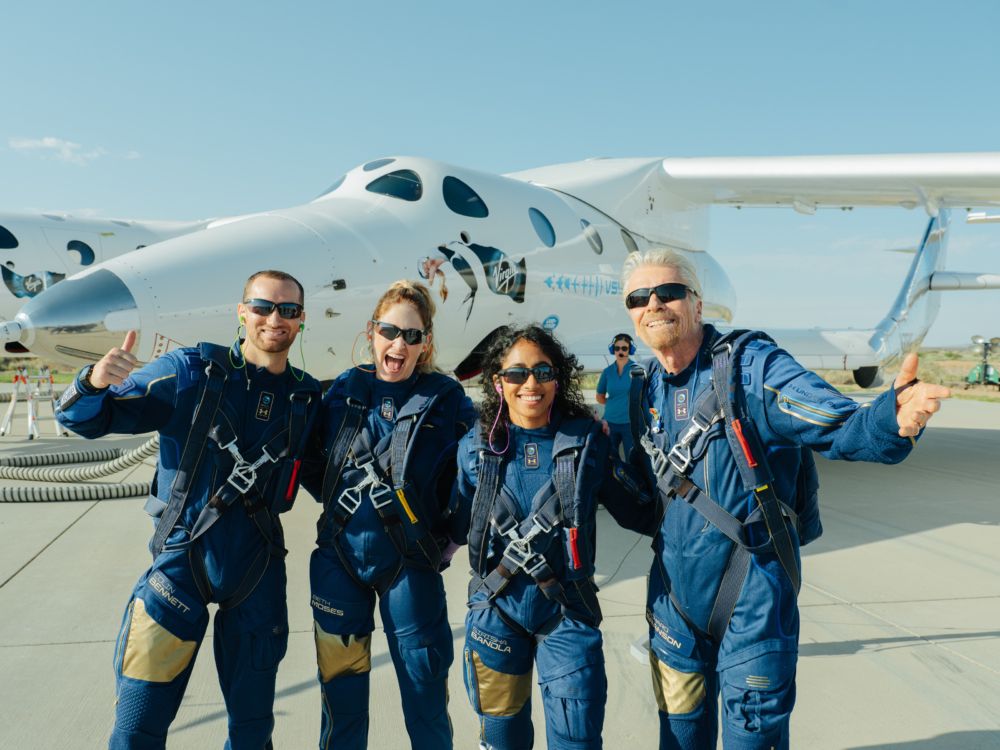The Federal Aviation Administration (FAA) has grounded Virgin Galactic's SpaceShipTwo after an unauthorized flight deviation in July. The near-Earth space vehicle, also known as VSS Unity, will not fly again until the FAA completes its investigation.
Straying outside designated airspace sees VSS Unity grounded
On July 11, Virgin Galactic successfully completed its first fully crewed spaceflight using VSS Unity. After hitting speeds of Mach 3, SpaceShipTwo reached an altitude of 53.3 miles, the very edge of Space, before returning to land at Spaceport America.
While on the descent, SpaceShipTwo veered slightly below its designated airspace for one minute and 41 seconds. At the time, Virgin Galactic said it did not fly outside the "lateral confines" of its designated flight path. But the FAA disagrees.
"SpaceShipTwo deviated from its Air Traffic Control clearance as it returned to Spaceport America," the FAA said in a statement released on Thursday. The FAA regulates commercial space flights in the United States.
"Virgin Galactic may not return the SpaceShipTwo vehicle to flight until the FAA approves the final mishap investigation report or determines the issues related to the mishap do not affect public safety."
Virgin Galactic's response to the grounding
Responding to the FAA's announcement, Virgin Galactic said it would work closely with the FAA. Virgin Galactic said it supported a thorough and timely review.
"We take this seriously and are currently addressing the causes of the issue and determining how to prevent this from occurring on future missions," a statement from Virgin Galactic reads.
"Although the flight’s ultimate trajectory deviated from our initial plan, it was a controlled and intentional flight path that allowed Unity 22 to successfully reach space and land safely at our Spaceport in New Mexico.
"At no time were passengers and crew put in any danger as a result of this change in trajectory, and at no time did the ship travel above any population centers or cause a hazard to the public."
The July 11 flight was the 22nd test flight of VSS Unity. But it was the first test flight with a full crew in the cabin. Included in the crew was Virgin Galactic's founder, Richard Branson.
The FAA had set aside airspace for SpaceShipTwo after it re-entered the Earth's atmosphere. This prevents it from coming into conflict with other aircraft. It is the short time SpaceShipTwo spent outside the protected airspace that has the FAA concerned.
A setback Virgin Galactic will bounce back from
Thursday's surprise move by the FAA took the gloss off a Virgin Galactic announcement that VSS Unity would return to low-orbit space in late September or early October. That flight date is now in jeopardy.
SpaceShipTwo's 23rd flight will be the first commercial, human-tended research mission for Virgin Galactic.
"Payloads onboard will study the effect of the microgravity environment on a range of chemical and physical properties," Virgin Galactic said on Thursday.
"By testing and evaluating physiological and technological responses in sub-orbital flight, the mission aims to produce insights relevant to current and future spaceflight systems and technologies."
In the scheme of things, Branson's emergent space tourism business has had worse setbacks. After a catastrophic in-flight breakup, VSS Enterprise (also known as SpaceShipTwo) crashed in October 2014, killing one pilot.
Seven years down the track, Virgin Galactic has recovered. Virgin Galactic is now aggressively pursuing its goal of becoming the world's first commercial spaceline. SpaceShipTwo's next flight may be delayed, but probably not for long.



